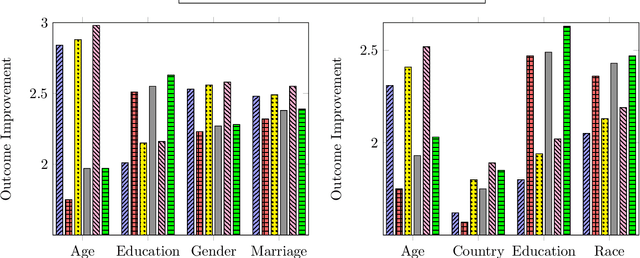Information Discrepancy in Strategic Learning
Paper and Code
Mar 03, 2021


We study a decision-making model where a principal deploys a scoring rule and the agents strategically invest effort to improve their scores. Unlike existing work in the strategic learning literature, we do not assume that the principal's scoring rule is fully known to the agents, and agents may form different estimates of the scoring rule based on their own sources of information. We focus on disparities in outcomes that stem from information discrepancies in our model. To do so, we consider a population of agents who belong to different subgroups, which determine their knowledge about the deployed scoring rule. Agents within each subgroup observe the past scores received by their peers, which allow them to construct an estimate of the deployed scoring rule and to invest their efforts accordingly. The principal, taking into account the agents' behaviors, deploys a scoring rule that maximizes the social welfare of the whole population. We provide a collection of theoretical results that characterize the impact of the welfare-maximizing scoring rules on the strategic effort investments across different subgroups. In particular, we identify sufficient and necessary conditions for when the deployed scoring rule incentivizes optimal strategic investment across all groups for different notions of optimality. Finally, we complement and validate our theoretical analysis with experimental results on the real-world datasets Taiwan-Credit and Adult.
 Add to Chrome
Add to Chrome Add to Firefox
Add to Firefox Add to Edge
Add to Edge